To see a difference on the street, we need to prevent people from becoming homeless in the first place.
The best way to do that is to stabilize their current housing. And Right to Counsel is the most effective prevention strategy we have to prevent illegal displacement.
Any homelessness measure, anti-displacement mechanism, or racial equity project is incomplete without eviction prevention.
Our housing system is fundamentally broken, and cannot be fixed through strategies that only emphasize development. The extent of the inequality perpetuated through housing courts cannot be redressed through a temporary initiative or program. We must restructure both to ensure Los Angeles residents have access to safe and affordable housing by empowering renters, increasing fairness in the courts by ensuring due process, and keeping people housed.
What We Do
The Los Angeles Right to Counsel Coalition is made up of tenants, tenant organizing groups and advocates, homeless advocates, academics, and legal services organizations. The coalition formed in June 2018 to call for a Universal Renters’ Right to Counsel for tenants facing eviction, including legal representation, eviction prevention services, and emergency rental assistance. Together the coalition developed a Right to Counsel Proposal for the City of Los Angeles and continues to campaign for
- A codified right to legal representation for all tenants facing eviction in the City and County of Los Angeles
- Eviction prevention services, including targeted tenant outreach and education
- Emergency rental assistance
- Data-driven phase in, prioritizing neighborhoods with greatest needs first. In particular, the low-income communities of color facing mass displacement from Los Angeles
- Fully resourced Phase 1, as proposed by the LA RTC Coalition, including $10 Million in 2019-2020 City Budget
- Complete the phase-in of the Right to Counsel so that tenants living throughout the City and County are covered by the end of 2024
Together, we can stop the displacement of families, the destabilization of our communities, and rising homelessness.

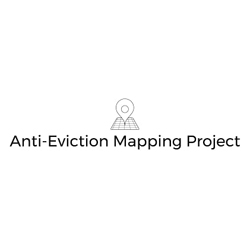
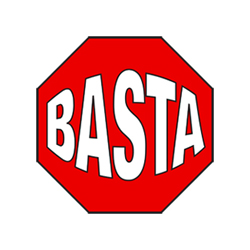



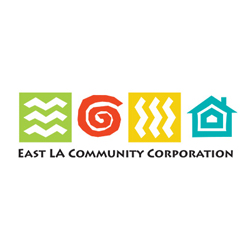
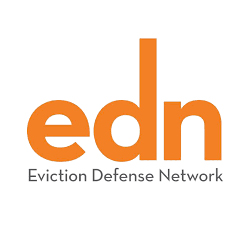

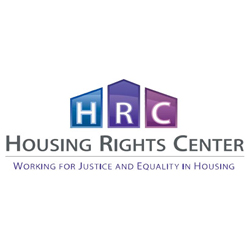

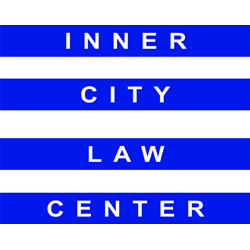
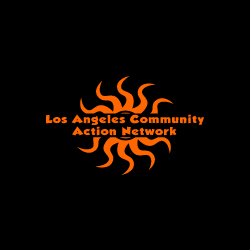
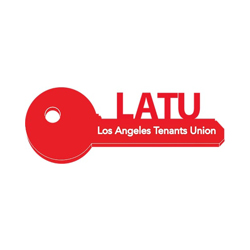

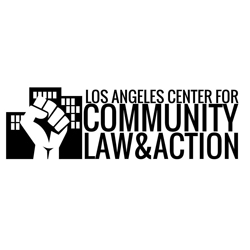
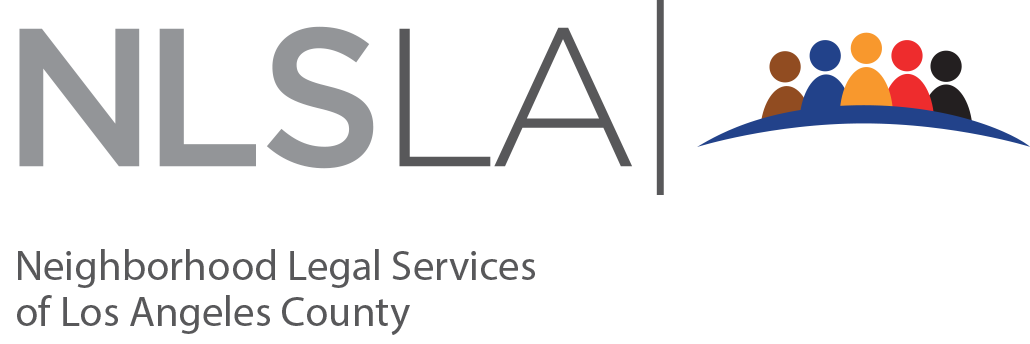


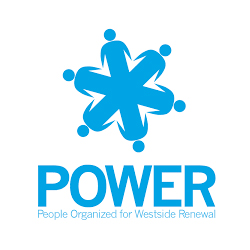


Organizational Endorsements Include:
- Abundant Housing LA
- ACCE
- ACLU of Southern California
- ACT-LA
- Alliance for Justice
- Anti-Eviction Mapping Project
- APAIT – a division of Special Service for Groups
- Asian Americans Advancing Justice – Los Angeles
- Asian Pacific American Bar Association of Los Angeles County
- Asian Pacific Policy and Planning Council
- Bend the Arc Jewish Action: Southern California
- Bet Tzedek Legal Services
- Bickerton for Mar Vista
- California Partnership
- CD Tech
- Central Hollywood Neighborhood Council
- Esperanza Community Housing Corporation
- Familia: Trans Queer Liberation Movement
- Food Chain Workers Alliance
- Freedom Socialist Party
- Hadsell Stormer Renick LLP
- Inglewood Renters Rights
- Instituto de Educacion Popular del Sur de California
- KIWA
- LA Aging Advocacy Coalition
- LA Black Worker Center
- LA Christian Health Center
- LA Forward
- LAANE
- Labor Community Strategy Center
- Loyola Law School
- Loyola Law School, National Lawyer’s Guild
- National Lawyers Guild Los Angeles
- NoHo Home Alliance
- Pasadena Tenants Justice Coalition
- People Organized for Westside Renewal (POWER)
- Peoples College of Law
- Prevention Institute
- Public Counsel
- SEIU 721
- Self
- South Asian Network
- Southeast Asian Community Alliance (SEACA)
- St. Barnabas Senior Services
- Tenants Together So-Cal
- Tenemos Que Reclamar Y Unidos Salvar La Tierra (T.R.U.S.T.) South LA
- Thai Community Development Center
- The Anti-Recidivism Coalition
- The Regenerative Collective
- The United Way of Greater Los Angeles
- UCLA Planners of Color for Social Equity (PCSE)
- Uplift Inglewood
- Venice Community Housing Corporation
- Wage Justice Center
- White People 4 Black Lives
- Women Organizing Resources, Knowledge and Services (WORKS)
What We Believe
Los Angeles’ Right to Counsel for tenants must be a CODIFIED RIGHT, fully resourced by the city and county of Los Angeles, and be a comprehensive policy that includes eviction prevention, public education, legal representation and emergency rental assistance.
Principles
- Work towards Universality
- Protect Vulnerable Populations including low income, seniors, and children
- Emphasize Prevention
- Provide Quality Services
- Maintain and Enhance Current Programs
- Center and Engage Tenants in Every Part of Campaign
- Ensure Community Oversight through Advisory Committee
What is Right to Counsel?
Every day the familiar phrase “you have the right to an attorney; if you cannot afford one, one will be provided for you” plays across thousands of American televisions from hundreds of legal television shows and films. The 1963 case Gideon v. Wainwright, in which the Supreme Court said that individuals charged with a crime have a right to counsel, made the idea central to the American justice system. Yet, this phrase, belies the reality for millions of cases across the country. This right only applies to criminal, not civil, cases. If a tenant facing eviction cannot afford an attorney, they are on their own.
Tenants’ Right to Counsel would change this reality by providing tenants with eviction prevention services, legal representation, and emergency rental assistance for all low-income tenants in Los Angeles City and County. By conferring a right, Los Angeles would prevent homelessness and keep people housed.
Los Angeles’s Right to Counsel would:
II. Preserve affordable housing
III. Promote community stability
Why this Matters
Right to Counsel is an idea whose time has come. Los Angeles should act now.
By enacting Right to Counsel, Los Angeles would join New York and San Francisco as leaders in taking proactive measures to fight the eviction and displacement crisis, help ensure critical future state funds, and most importantly confer a right to tenants ensuring access to justice in order to strop unjust evictions.
I. Prevent evictions
When tenants are not represented by an attorney, they almost always lose, even if they have a valid legal defense. Rights without an ability to assert them are worthless. Once landlords know that all tenants have access to legal representation, they will not use evictions to scare tenants into leaving rent controlled apartments, saving court resources and preventing unjust filings. New York proves this point. 84% of all tenants who were provided an attorney in Housing Court remained in their homes. Evictions dropped by 27 percent overall since 2013, (5% in 2018 alone) helping an estimated 70,000 tenants stay in their homes. California’s own Shriver Project further demonstrates the effectiveness of legal representation: Having an attorney in an eviction case increases a family’s chance of avoiding houselessness by over 70%. Only 6% of Shriver clients were formally evicted from their homes. Providing tenants legal representation will not only reduce the number of evictions successfully carried out, but deter landlords from pursuing wrongful evictions in the first place.
Despite the significant beneficial outcomes of legal representation for tenants once in court, an eviction is never just an eviction; it is almost always preceded by harassment, notices, and habitability issues that go unresolved in an attempt to make the tenant leave. Los Angeles’s Right to Counsel will provide tenants with critical pre-eviction support, helping tenants to address habitability issues before an eviction is filed. Having and knowing one’s rights enables people to take action. With Right to Counsel, tenants will know court is a place to find justice, and tenants will be more likely to report code violations and overcharge complaints and landlords will be less likely to file unjust evictions as a means of intimidation.
II. Preserve affordable housing
Right to Counsel preserves the city’s existing affordable housing supply by keeping working-class people in the homes they already live in. By ensuring people currently living in affordable housing face a lower risk of eviction, the city avoids increasing the number of people on the market for affordable units and reduces the likelihood that housing, once vacated, will be turned market-rate. Without a change in tenancy, units protected by the rent control ordinance are limited to 3-5% annual rent increases.
III. Promote community stability
Right to Counsel in Los Angeles will help alleviate some of the pressures of gentrification and displacement. Renter households face the greatest risk of displacement in gentrifying neighborhoods, and equipping them with more tools to help protect their housing will mean that more people will stay in their neighborhoods. But preventing eviction has a number of benefits that extend beyond the immediate priority of keeping people housed. By avoiding the disruption of eviction, people will not have to move out of their homes, workers will not face longer commutes or have to quit their jobs, and children will not have to change schools or enter foster care.
IV. Prevent homelessness
Los Angeles’ homelessness crisis is directly connected with the city’s eviction crisis. For many low-income families, “…evictions, whether through formal court proceedings or other methods of involuntary displacement from housing, are a direct cause of homelessness.” The 201 homelessness count found a 12% increase in people who are newly homeless for the County of Los Angeles and 15% for the City of Los Angeles.. Many of these are families with high rent burdens, who once evicted, end up on the street. Providing tenants with counsel has been proven to reduce the number of evictions.
As new resources, such as those from measures H and HHH, are directed to construct supportive housing and provide services for homeless residents, it remains imperative to prevent more low-income tenants from needing these services in the first place.
The underlying objective of Right to Counsel is to keep tenants in their homes. Ensuring that renters facing eviction benefit from legal counsel reduces the number of evicted tenants who experience homelessness as a result. When cities allocate resources toward preventing unjust evictions, they reduce the number of people who will experience homelessness and require access to those services. Implementing Right to Counsel will reduce the amount of permanent supportive housing, shelter beds, and affordable housing units required in the long-term…if we understand the homelessness crisis as part of the city’s eviction emergency, the urgency of Right to Counsel as a mechanism to support the city’s unhoused, underhoused, precariously housed residents becomes clear.
V. Correct the power imbalance in the courtroom
Nationally, 10% of tenants facing eviction have representation from an attorney, while 90% of landlords have legal representation. When tenants are not represented by an attorney, they almost always lose, even if they have a valid legal defense. This fact demonstrates that landlords are often able to evict tenants because they have the resources to do so, not necessarily because the law supports them. This power imbalance extends beyond the courtroom. Fewer than 20% of tenants appear in court because they don’t believe they have any power to fight their cases.
As a result of this gross imbalance, two civil justice systems emerge: one for the rich and one for the poor. Due process is a constitutional guarantee but it is inaccessible to many under this two-tier and unequal system. Thousands of low-income tenants cannot access their constitutional right to a fair legal process when facing eviction. The constitution guarantees equal protection under the law. Yet low-income Los Angeles residents, the majority of whom are people of color, are frequently denied equal protection when they cannot afford a lawyer in eviction cases and lose their homes as a result.
Right to Counsel is critical to redressing the power imbalance between tenants and landlords in Los Angeles. When tenants have legal representation, they achieve far more beneficial outcomes than tenants without representation. Having an attorney in an eviction case increases a family’s chance of avoiding houselessness by over 70%. Right to Counsel will ensure tenants leave court knowing their voices were heard and their rights protected.
VI. Provide Cost savings
Right to Counsel has been found by independent studies to be a highly cost-effective mechanism to prevent homelessness. A report commissioned by the Philadelphia Bar Association found that Right to Counsel is one of the best investments a city can make to reduce both the number of people experiencing homelessness and the associated financial costs of providing those services. In Philadelphia, the financial analysis demonstrated that the city will save $12 for every $1 spent. A similar analysis of Right to Counsel in New York City found that providing legal counsel in eviction proceedings would save the city $54 million in homeless shelter cost savings, affordable housing savings, and unsheltered homeless cost savings.
In addition to the financial savings associated with direct homeless services (such as shelters, etc.) these reports also identified the value of reducing social/human costs associated with eviction (“further benefits to the City not yet quantified”): the cost associated with homeless children as a result of eviction; the cost of providing welfare when jobs are lost due to eviction; enforcement of rent law and regulations; a likely reduction over time in the numbers of eviction cases needing counsel because landlords would bring fewer cases knowing that tenants will have legal counsel and because cases will be resolved with greater finality and less repeat filings when both sides have counsel.
VII. Right to Counsel is a Racial Equity Project
It is a well-documented fact that evictions disproportionately impact Black and female-headed households. Decades of analysis demonstrate that the higher the percentage of Black persons and children living in female headed households, the higher the eviction rate. In April 2018, the Los Angeles Homeless Services Authority (LAHSA) launched the Ad Hoc Committee on Black People Experiencing Homelessness which reported that Black people are more likely than White people to experience homelessness in the United States. Los Angeles County is no different. “In 2017, Black people represented only 9% of the general population in Los Angeles County yet comprised 40% of the population experiencing homelessness”. The committee’s work clearly outlines the biases and barriers faced by Black people in housing and labor markets–the racism at every level–that leads to an overrepresentation in the population experiencing homelessness.
Matthew Desmond’s research on evictions in America demonstrates that the number of women evicted from majority-Black neighborhoods is more than triple that for women in majority-White neighborhoods.
The impact of institutional and structural racism cannot be denied. Homelessness in Los Angeles is a by-product of racism in America. Right to Counsel is one way to institutionalize justice and fight anti-black racism and other forms of racism and oppression.
Pre-eviction support and legal representation not only stops the eviction crisis, it helps stop the mass displacement of low-income people of color from their homes and neighborhoods. A Right to Counsel would tell communities of color, disproportionately impacted by evictions in Los Angeles, that their lives and homes matter under the law.
A Roof is a Right
Los Angeles needs a codified RIGHT to counsel for tenants facing eviction
A Right to Counsel is a civil right, connected to the movement for the right to housing, the right to the city and the right to equality and human dignity.
“Right to Counsel cannot just be about meeting numbers—numbers of cases represented, numbers of people served, numbers of homes protected, numbers of dollars saved for every dollar invested, numbers of shelter residents reduced. Those are important numbers, but they cannot be the goal of this initiative. How people are treated must be at the foundation of this—as it is at the foundation of the movement for a Right to Counsel . Increased funding increases the pool of people who get lucky. By contrast, a fully funded and a well implemented Right to Counsel, is a strong step forward in the path towards institutionalizing justice.” Susanna Blankley, RTCNYC Campaign Coordinator
“Merriam-Webster defines a “legal right” as “a claim recognized and delimited by law for the purpose of securing it,” and “the interest in a claim . . . for the infringement of which claim the state provides a remedy in its courts of justice .” It is that enforceability of a remedy in a “court of justice” for violation of a right, that enables a right-holder to derive power from a right, and what distinguishes it from a privilege or a benefit.” Andrew Scherer, Policy Director of the Impact Center for Public Interest Law at New York Law School, Why A Right: The Right to Counsel and Ecology of Housing Justice
Simply increasing funds for legal assistance for people facing eviction is helpful, but it is not enough. It is not enough because it is a benefit conferred by the city, county, or state that can be denied or terminated if political support wanes.
A Right to Counsel will institutionalize justice. By codifying a Right to Counsel, the courtroom will become a place where tenants feel heard and where justice and fairness is served. A Right ensures due process.
A Right to Counsel eliminates unequal power in the courtroom, deters unjust eviction, and extends equal protection under the law. When tenants know they have rights on their side, they will act on those rights.
Tenants will no longer fear reporting housing code violations because they will no longer fear the unjust eviction. A Right to Counsel, therefore, means safer homes. Safer homes mean safer neighborhoods.
A Right to Counsel would tell communities of color, disproportionately impacted by evictions in Los Angeles, that their lives and homes matter under the law. A Right to Counsel says tenants are worthy of being represented, to know their rights and that the law will guarantee their defense.
A Right to Counsel is one critical steps to the right to housing. When one is facing eviction, they are not simply facing the loss of an apartment, they face the loss of home, of safety, of school, of family, and of community. A Right to Counsel shifts culture. Keeps people in their homes and ensures a just, safe, and housed Los Angeles.
“A right not to be deprived of a meaningful opportunity to defend one’s home in the courts because of one’s poverty fosters equality and, in protecting the ability to have a home, protects the ability to exercise many other of the important civil rights, such as the right to vote and the right to equal opportunity in work and education.” Andrew Scherer, Policy Director of the Impact Center for Public Interest Law at New York Law School, Why A Right: The Right to Counsel and Ecology of Housing Justice.

